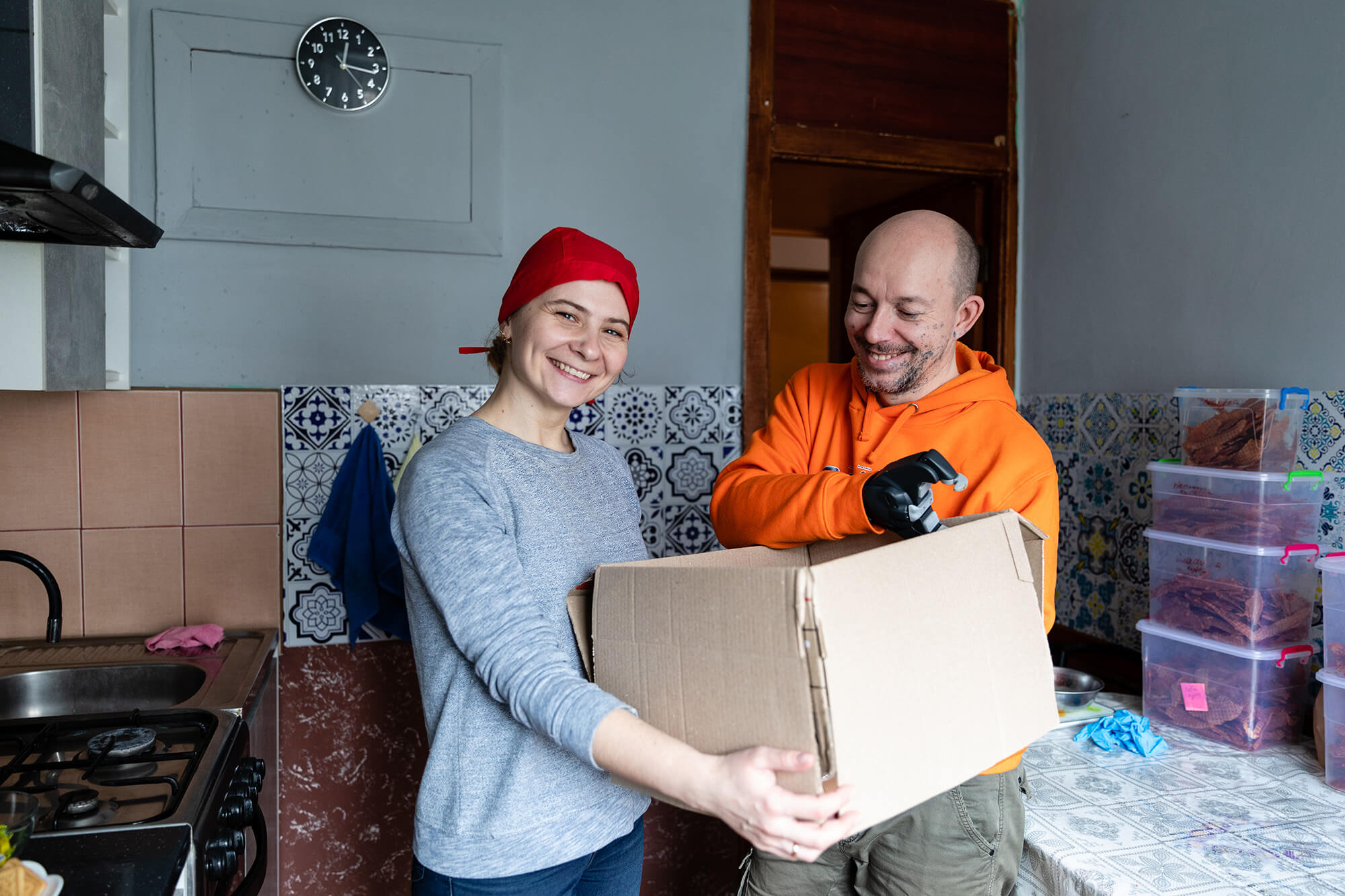
This Is Going to Be Our Joy
Serhii Zhukovskyi, 43, is a Ukrainian serviceman. He lost both arms during the war. After prosthetic rehabilitation, he established his own business as a veteran entrepreneur. Now, with new arms made of steel, he’s rebuilding his life. Serhii believes that while war wreaks destruction, it also has the power to reignite the fading light.
“Zhuk was here”
Using a ballpoint pen, Serhii traces letters onto a piece of paper torn from a quad-ruled notebook. He does it slowly, neatly, in his best handwriting. It is as if he’s writing a sacred message or a clandestine note. A spacious café, its white walls lined with bookshelves resembling decks of cards, is so quiet you can hear a pin drop. People hold their breath. They’re eager to hear what this man with two myoelectric arm prostheses, wearing an orange sweatshirt with the word “Superhumans,” has written.
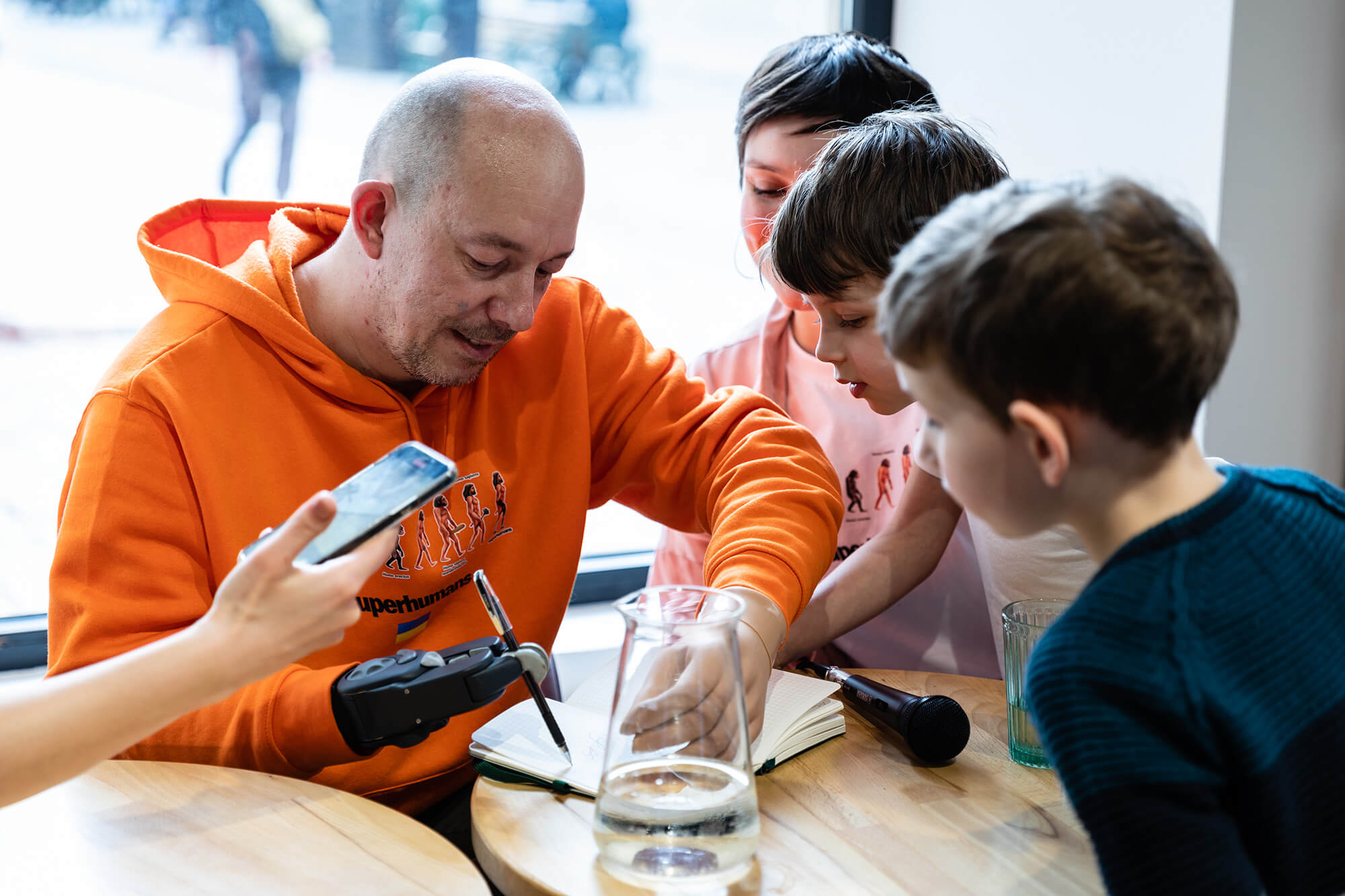
“Zhuk was here.” Serhii solemnly lifts the sheet of paper for all to see. His facial muscles tense up as he flashes a smile. Hadn’t it been for the cracked skin around his stubble (the traces of a soldier’s life and injury), you would’ve thought he walked out of a fairy tale, a children’s favorite hero.
And indeed, it is true. Today, Serhii sits at the Old Lion Bookstore Café and delights the youngest readers and their parents with their favorite fairy tales. There’s a lively discussion of the plot of “The Lame Duckling.” Like a flock of chicks, the children gather around Serhii, their eyes brimming with curiosity as they examine every detail of his new arms.
Tokmak
Tokmak, a town of thirty thousand people, sits on the banks of the Tokmak River in Zaporizhzhia Oblast. Once traversed by a chumak route [An important historical trade route in Ukraine. — Ed.], it derived its name from the Turkic or, more precisely, Crimean Tatar word “tokmak,” meaning a mallet or stick. It was historically renowned for agriculture, livestock farming, trade, and craftsmanship. It’s here that Serhii Zhukovskyi was born and raised. From a young age, he dreamed of becoming a farmer, connecting his life with the soil and nature. He also dreamed of serving in the Ukrainian army.
Serhii had a poor but happy childhood. A single pair of weathered boots for all seasons. Playful games of hide-and-seek with his friends, an old motorbike, thrilling adventures, evening rides on a scooter along the riverbank. After finishing the ninth grade, he continued his studies at a technical college majoring in mechanical engineering. Later, Serhii enrolled in the Melitopol Agricultural Academy. But he never abandoned that other dream of his—becoming a serviceman.
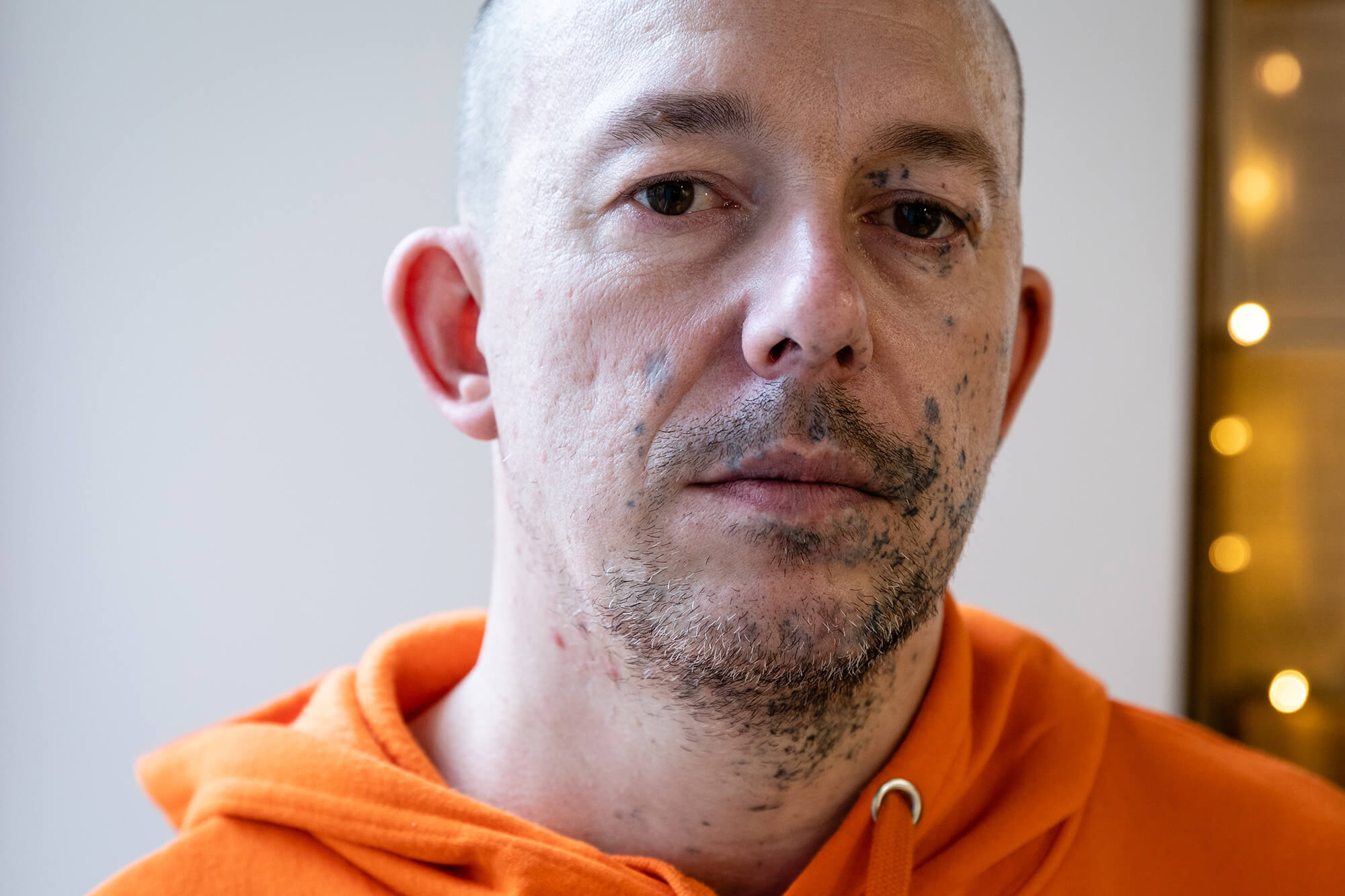
Finally, he decided to enlist. In 2000, at the age of 19, Serhii underwent his first military physical exam only to receive a disappointing conclusion. He was diagnosed with flat feet, allergies to a range of food additives, and trigger finger on his right hand.
“Today, it’s not a big deal, even if you’re missing an arm or two. But at the time, you couldn’t enlist with the conditions I had,” Serhii says, glancing at his black prosthetic arm.
Following another medical exam in Zaporizhzhia, Serhii was issued “a white card” with a verdict: deemed unfit for military service during peacetime. Under martial law, his only option for service would be as a driver.
On the road
“We were left without a home. We only managed to take what we could cram into our car. Everything we owned, all our appliances and computers—everything was left behind.”
Serhii’s voice gets softer, and a thin thread of his smile slowly rolls off his face.
On Feb. 24, 2022, Tokmak found itself targeted by Russians, much like hundreds of other frontline towns in Ukraine. Within days of the full-scale invasion, Russian tanks broke through into the territory of the Tokmak municipal community despite the resistance put up by Ukrainian defenders. By March 1, Russian troops had seized control of the town. There were fierce battles; the enemy advanced with tanks and bombarded the area with artillery and other weaponry. There was no electricity, heat, water, or communications. The air smelled of fear and apprehension. Black smoke hung heavily over the town, seeping through windows into people’s homes and hearts.
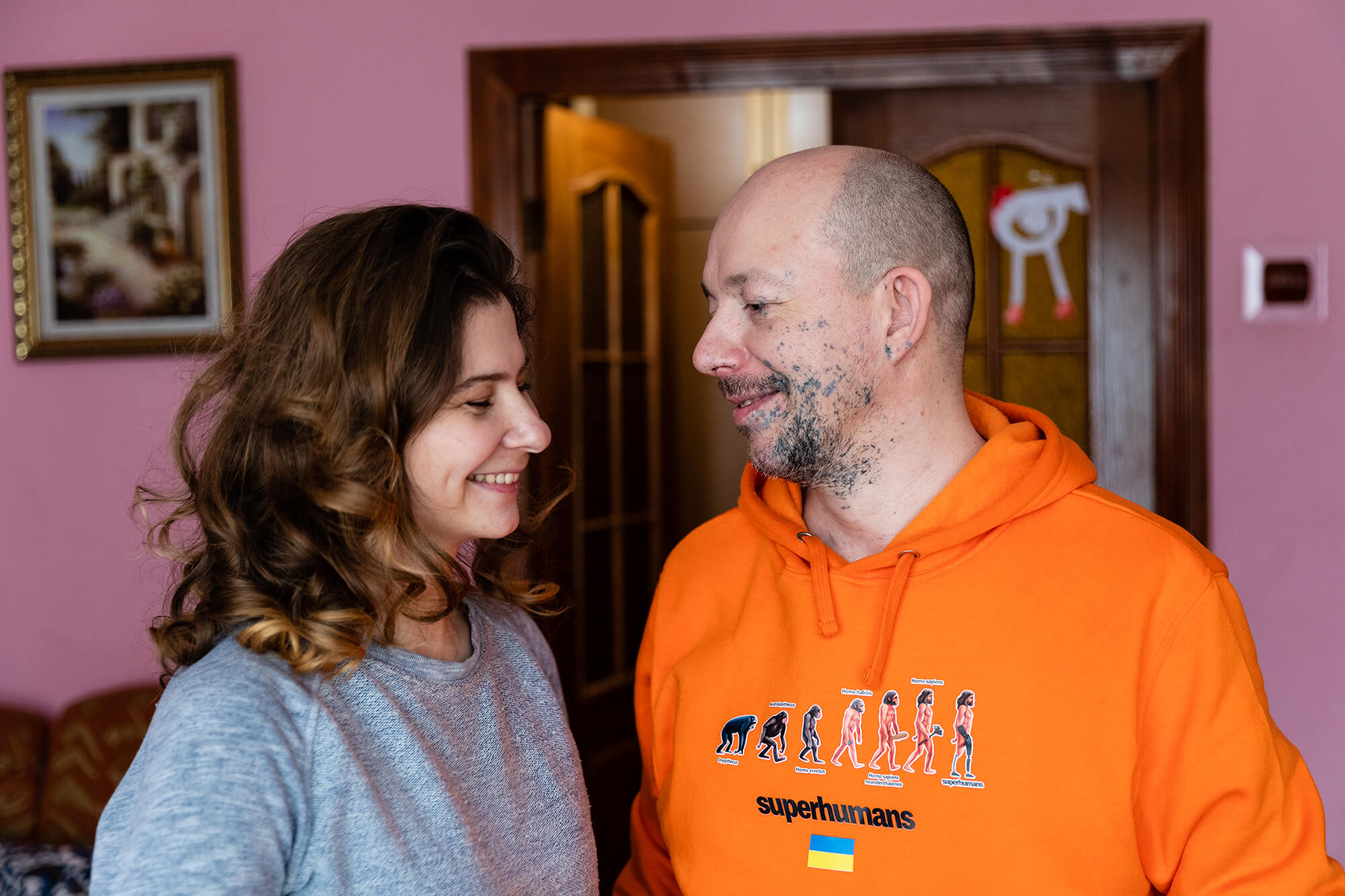
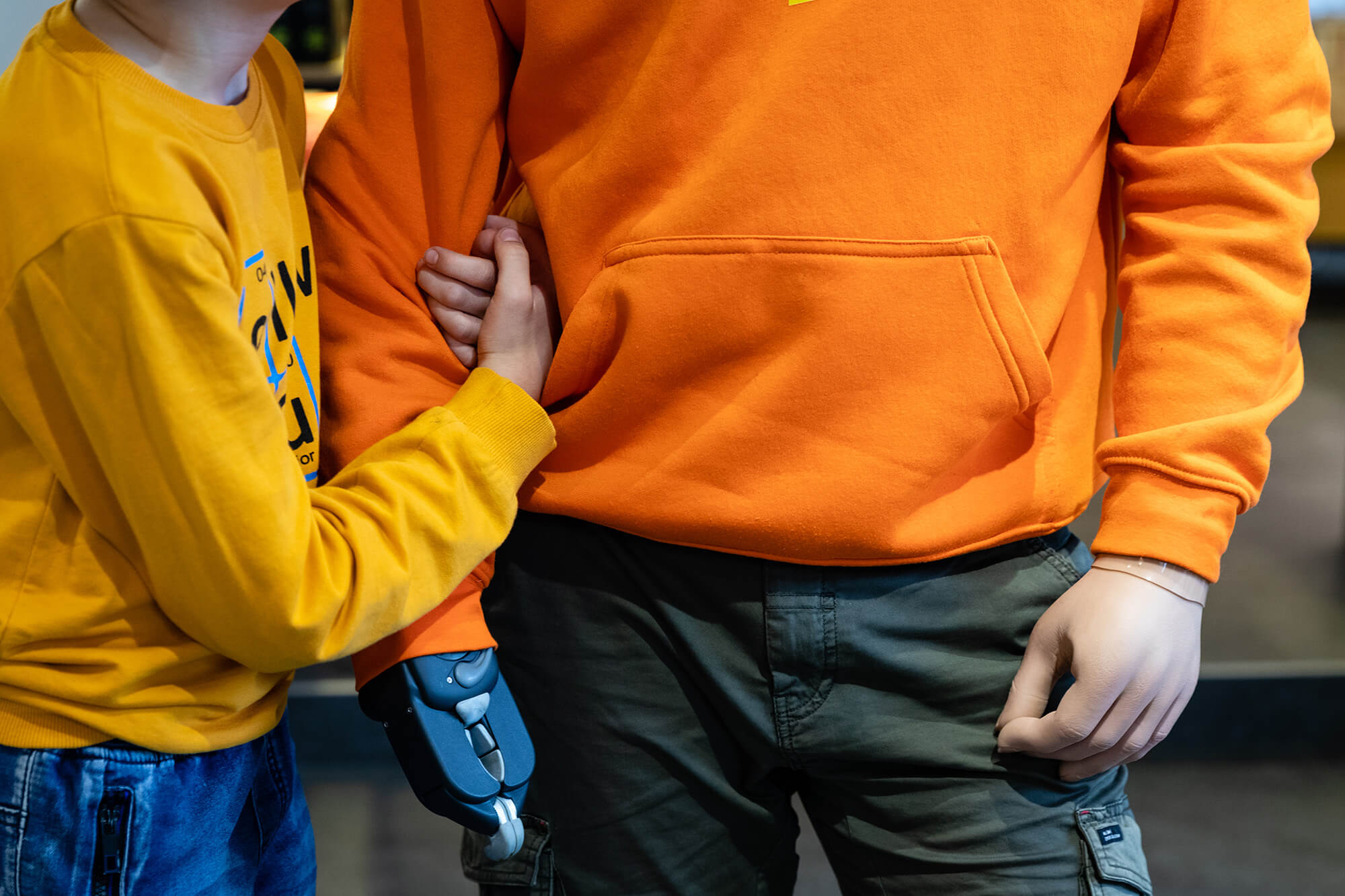
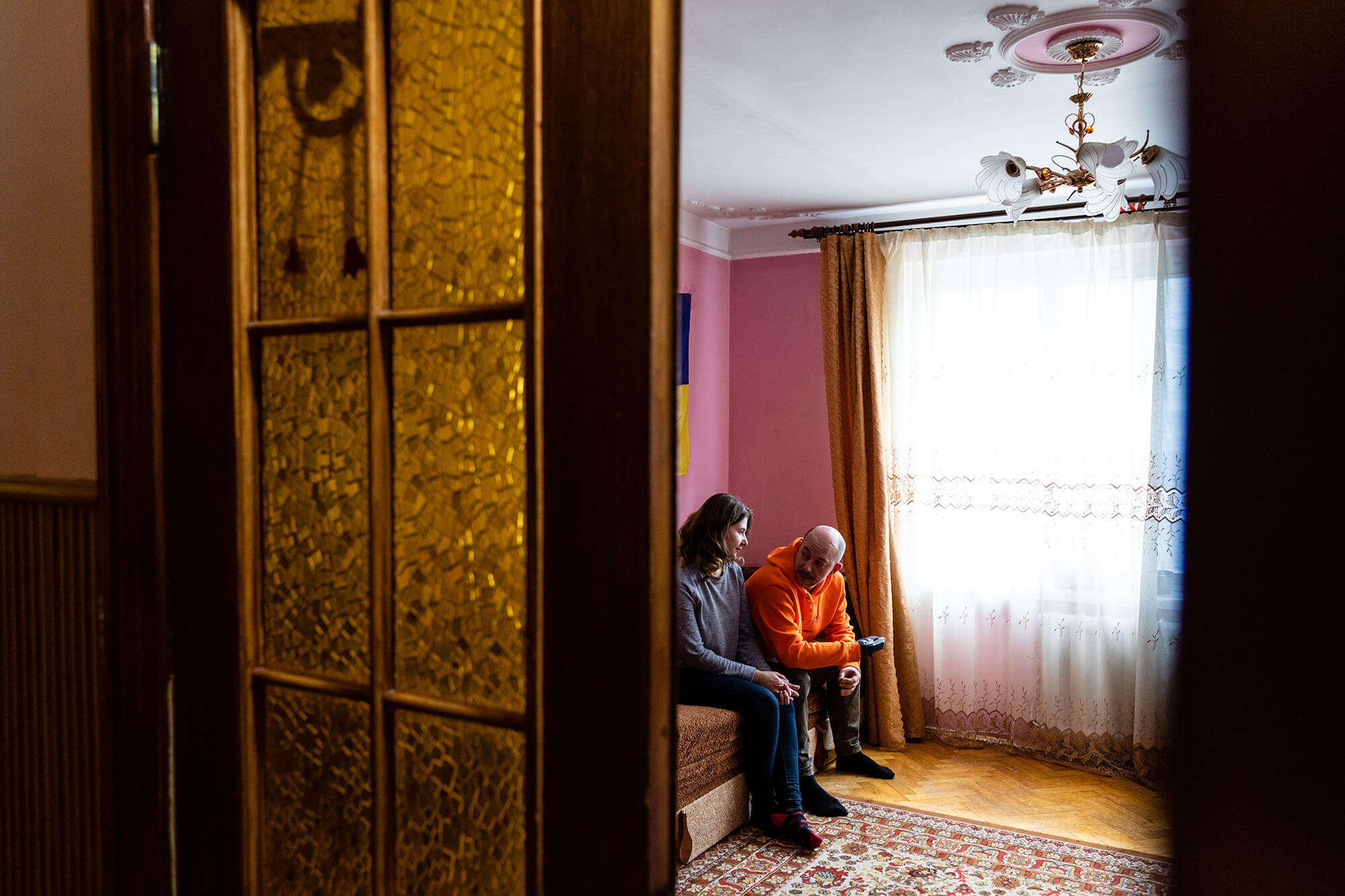
Serhii had decided to evacuate his family from Tokmak even before the occupation began. With missiles whizzing overhead and the neighboring city of Melitopol falling under occupation, the Zhukovskyi family gathered their documents and packed essential belongings into their car, fleeing Tokmak. They spent several days on the road, heading towards the western part of Ukraine. Eventually, they found refuge in Turka, a town in Lviv Oblast.
“My boys”
“You don’t exactly look like a military man,” Serhii was told as soon as he walked into a local enlistment office in Lviv Oblast.
While his wife and two sons struggled to settle into their new place, hiding their grief over the loss of their home, Serhii couldn’t shake off his restlessness. He knew that the only place where he could be useful at that time was on the front lines.
“I felt a sense of shame of seeing boys from Lviv Oblast heading to the front to liberate my town, my home. So, I decided to enlist as well,” he explains.
However, he had to fight for a position in the Armed Forces of Ukraine. At first, they didn’t want to take Serhii in because he lacked military experience. But he persevered and finally was lucky enough to earn a place in training alongside other recruits. However, during a lineup at the training grounds, some of them, including Serhii, were instructed to return home.
Later, Serhii was informed that they were looking for volunteers to join an artillery unit. This time, his dream came true: He joined the 80th separate air assault brigade of the Ukrainian Armed Forces, progressing from a soldier to a junior lieutenant and eventually a platoon commander.
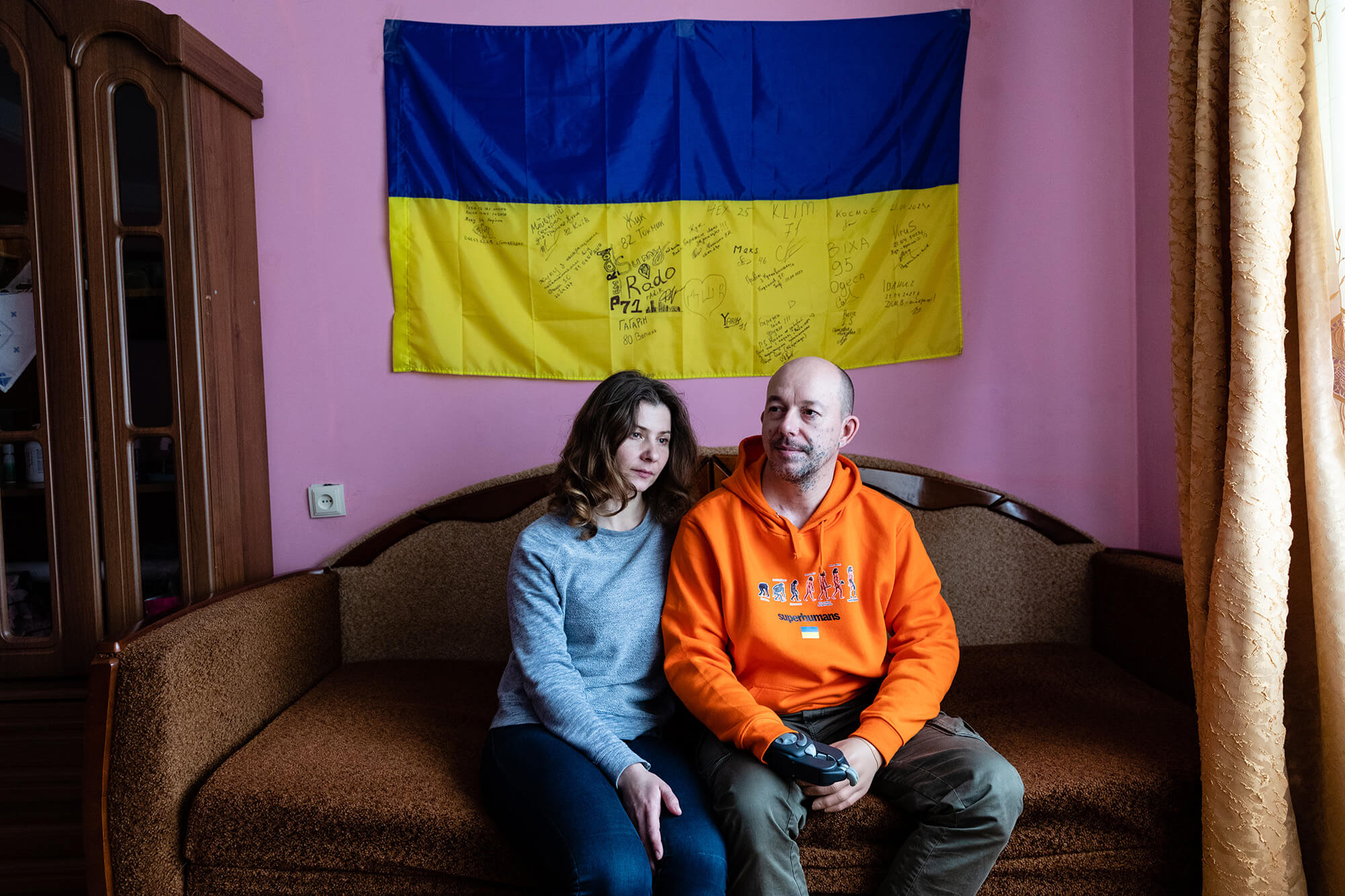
He participated in combat operations in the Kharkiv area and stormed the Serebrianskyi forest in Luhansk Oblast. It was there that he sustained his first injury. Amid heavy shelling, shrapnel from a missile pierced his body, lodging near his spine.
Serhii spent almost a month in military hospitals. The doctors’ attempts to remove the dangerous fragment from beneath his skin proved unsuccessful. Despite this setback, the wound gradually began to heal, and he soon returned to the front lines, this time as part of the newly established 82nd brigade. The joy of reconnecting with his comrades momentarily overshadowed his health concerns.
In the spring of 2023, a critical and massive attack unfolded in the Zaporizhzhia area. Ukrainian forces pushed forward to liberate occupied towns. Serhii’s hometown was one of the strategic objectives.
“In that brigade were my boys from Tokmak, Berdiansk, and Zaporizhzhia. I dreamed of coming home. And I did come home. When that moment arrived, my comrades and I hugged each other like family,” Serhii recalls.
His motivation surged rapidly. After the Armed Forces achieved further successes in the east and south of Ukraine, he was once again offered the opportunity to undergo training, this time to become a junior lieutenant and assume a corresponding position in the army. Serhii viewed this act of trust from his comrades and superiors as a challenge, a significant responsibility, but also an opportunity to continue his military journey with unwavering enthusiasm.
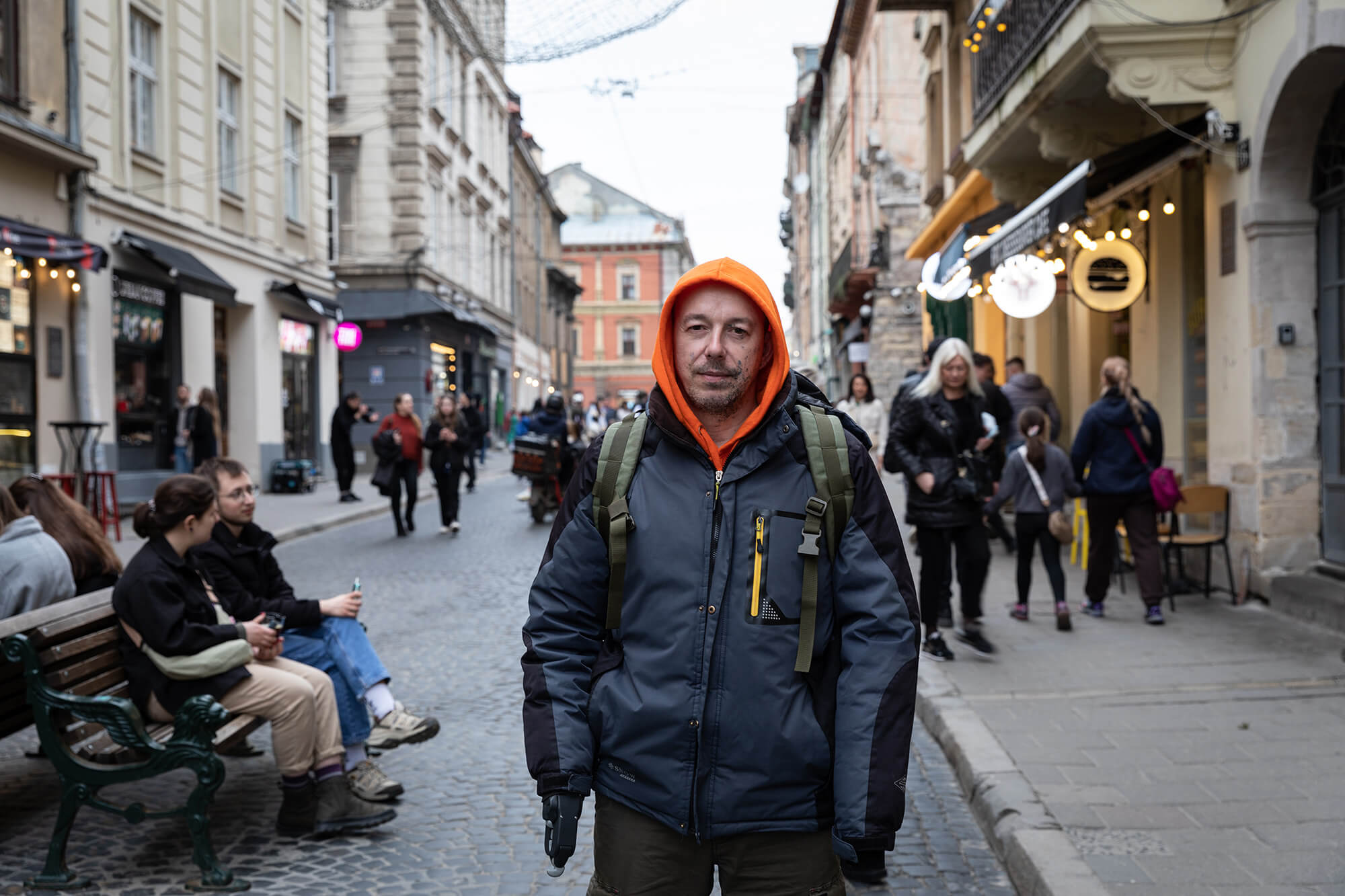
In June 2023, before a challenging tactical withdrawal from a combat mission in the Zaporizhzhia area, Serhii sustained injuries from a mine blast, resulting in the loss of both arms.
The rehabilitation process proved to be longer and more complex than he anticipated. After extensive treatment, he was deemed unfit to serve in the army.
“We’ll call you back”
Serhii’s wife, Daryna, rushed to search for the best rehabilitation centers and volunteer-run and international prosthetics initiatives. By chance, she learned about Superhumans, a center for prosthetics, reconstructive surgery, and rehabilitation for war victims near Lviv. Together, they completed an application to join a waiting list. A few days later, the staff of the Superhumans Center invited them to come in for bloodwork. “We’ll call you back,” they promised.
“I know all too well what ‘we’ll call you back’ usually means,” Serhii says, recalling his skepticism. At that moment, he doubted that he could actually get new arms. But just a day or two later, the couple did get a follow-up call. Serhii was told that the center was launching a new international program with support from American colleagues, and he was invited to participate in a rehabilitation program to receive prostheses for both arms. His family decided to move to Lviv to stay close to Serhii and help him when needed.
Serhii underwent prosthetic limb fitting with a steadfast belief that he could rebuild his life after the injury. For him, having the right support network was paramount—people who believed in him even more than he believed in himself. At the Superhumans Center, he found exactly that: a team of professionals, social workers, and rehabilitation specialists, as well as fellow soldiers. Following a month of rehabilitation, Serhii, now an alumnus o the center, was offered the opportunity to participate in a training program aimed at empowering veterans to start their own businesses. He readily agreed.
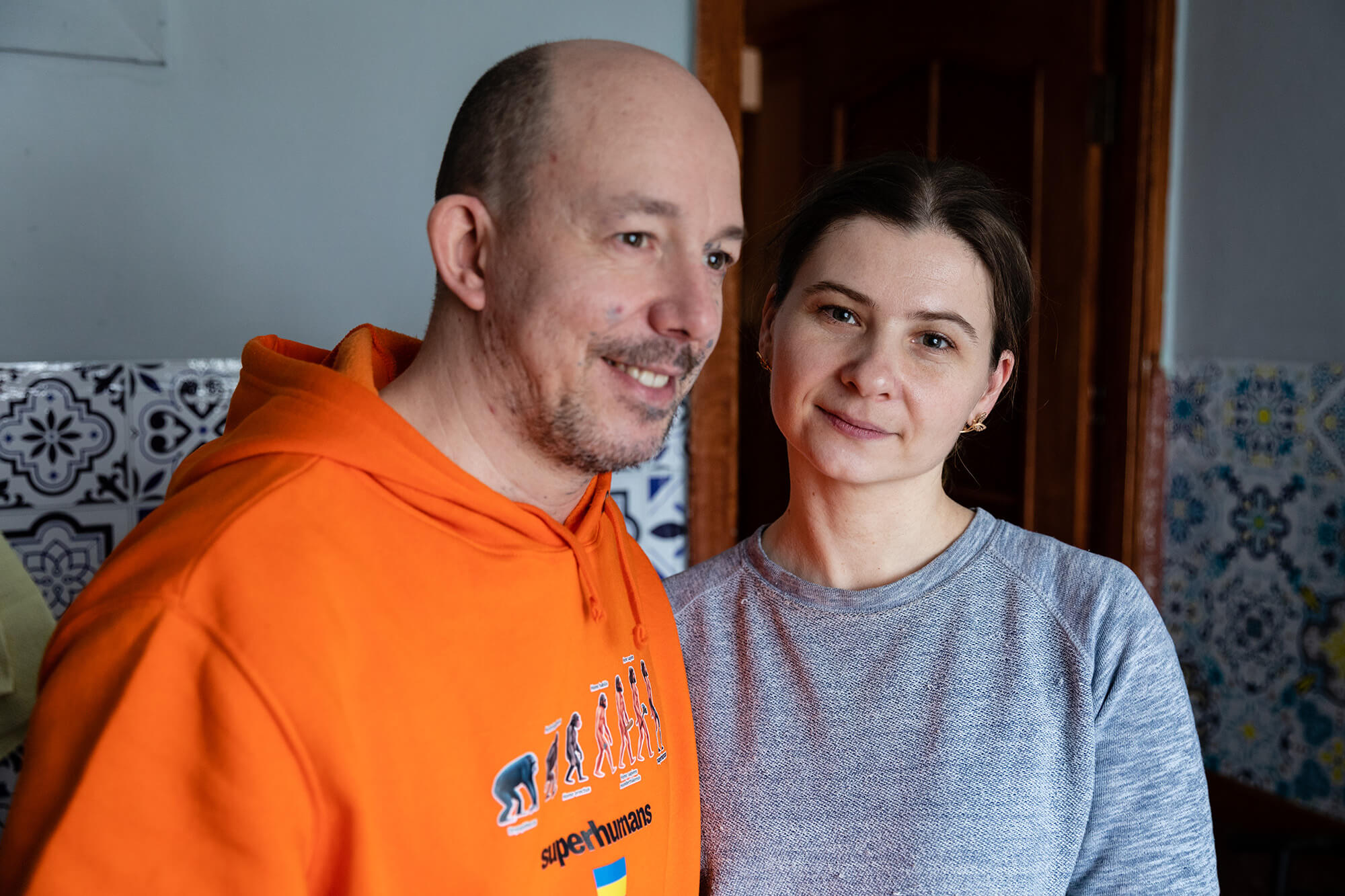
Before the war, Serhii was an entrepreneur. He assembled vintage motorcycles and supplied car parts. So, he got excited about the prospect of getting back to it and started exploring various business ideas. He wanted to try something new.
In the meantime, he received a call from a military unit offering him a position as an instructor for new soldiers. He declined the offer, feeling that his experience with upper limb prosthetics was challenging enough and didn’t instill confidence in his ability to train others effectively. Instead, he decided to return to entrepreneurship and start anew. After completing the training program run by the Superhumans Center, he began contemplating potential startup ideas.
“I got this idea back on the frontline,” Serhii says. “Volunteers brought us some food, including jerky [pieces of cured meat soaked in condiments and dried out in special conditions,—R]. And I got excited about it.”
“Dried Joy”
Daryna is bustling about in her kitchen in Lviv. She ties a red bandana around her head, tucking shiny strands of her hair under the thick cloth. The rays of spring sunlight filter through the window, casting a gentle glow over the small kitchen. The place is abuzz with activity.
“Our older son came up with this name. ‘This is going to be our ‘dried-out joy,’’ he said,” Serhiy says with a fond smile, looking over at his fifteen-year-old son, Ivan. He adds proudly: “He even put together a whole presentation for the project.”
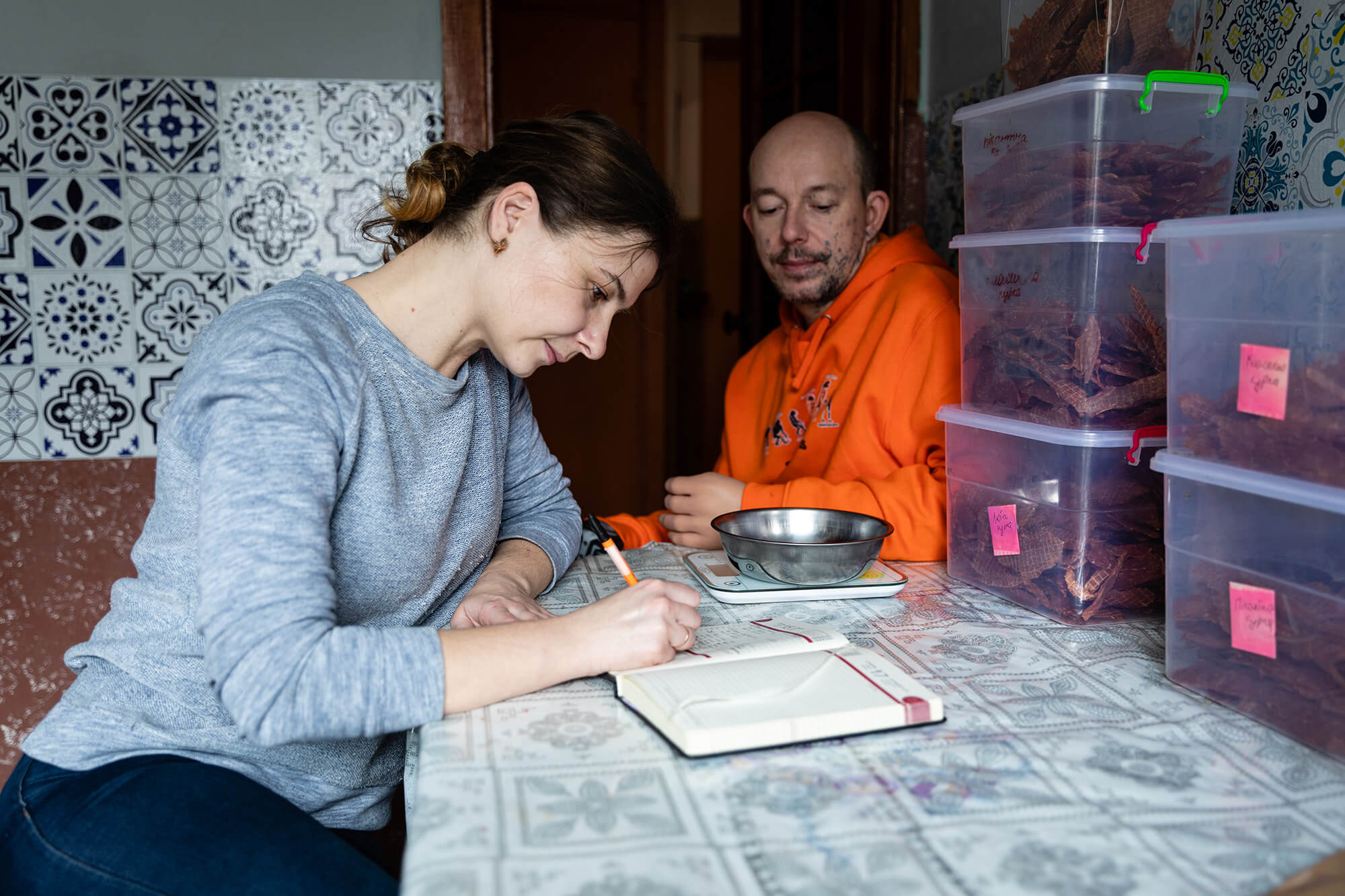
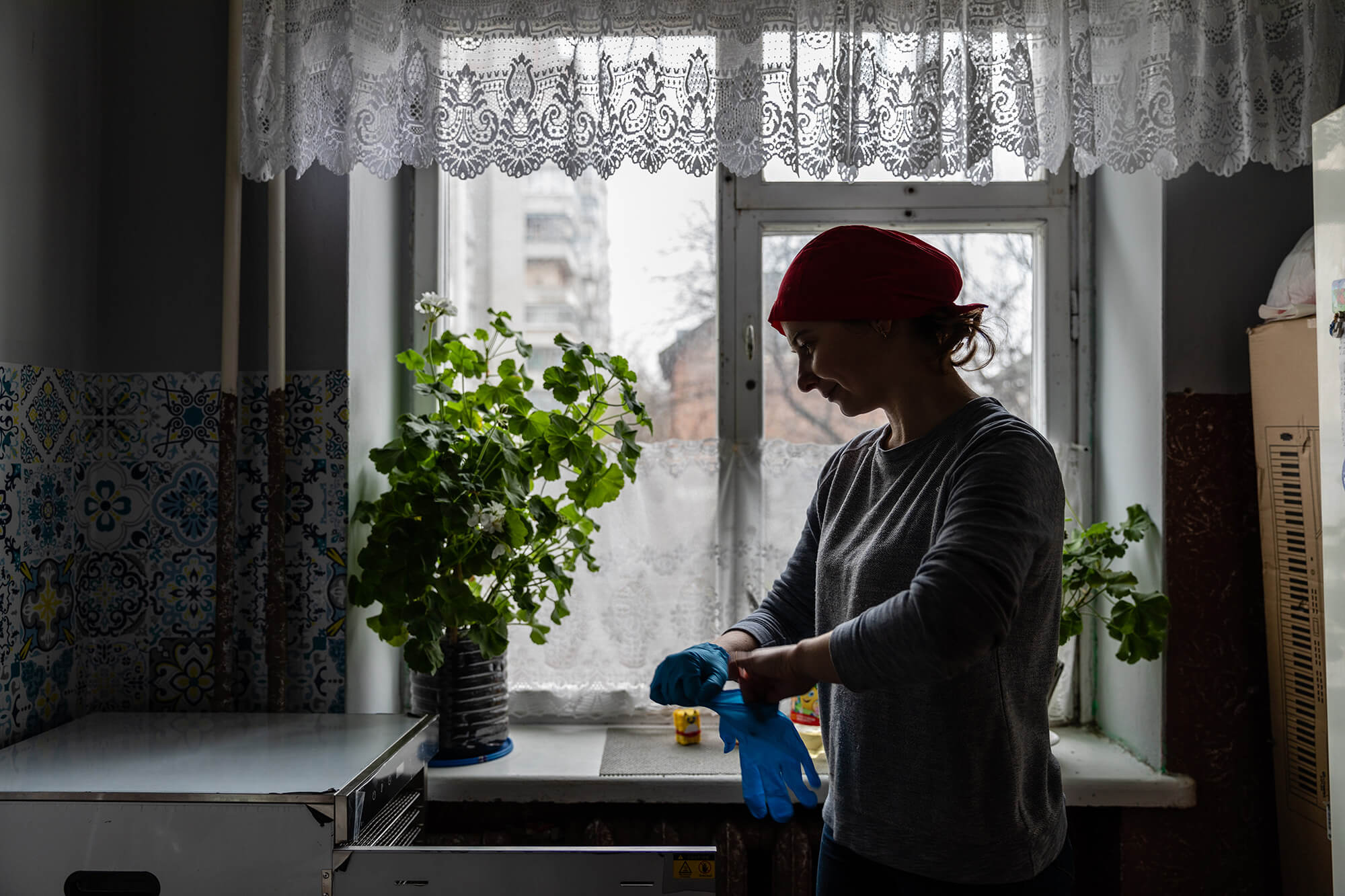
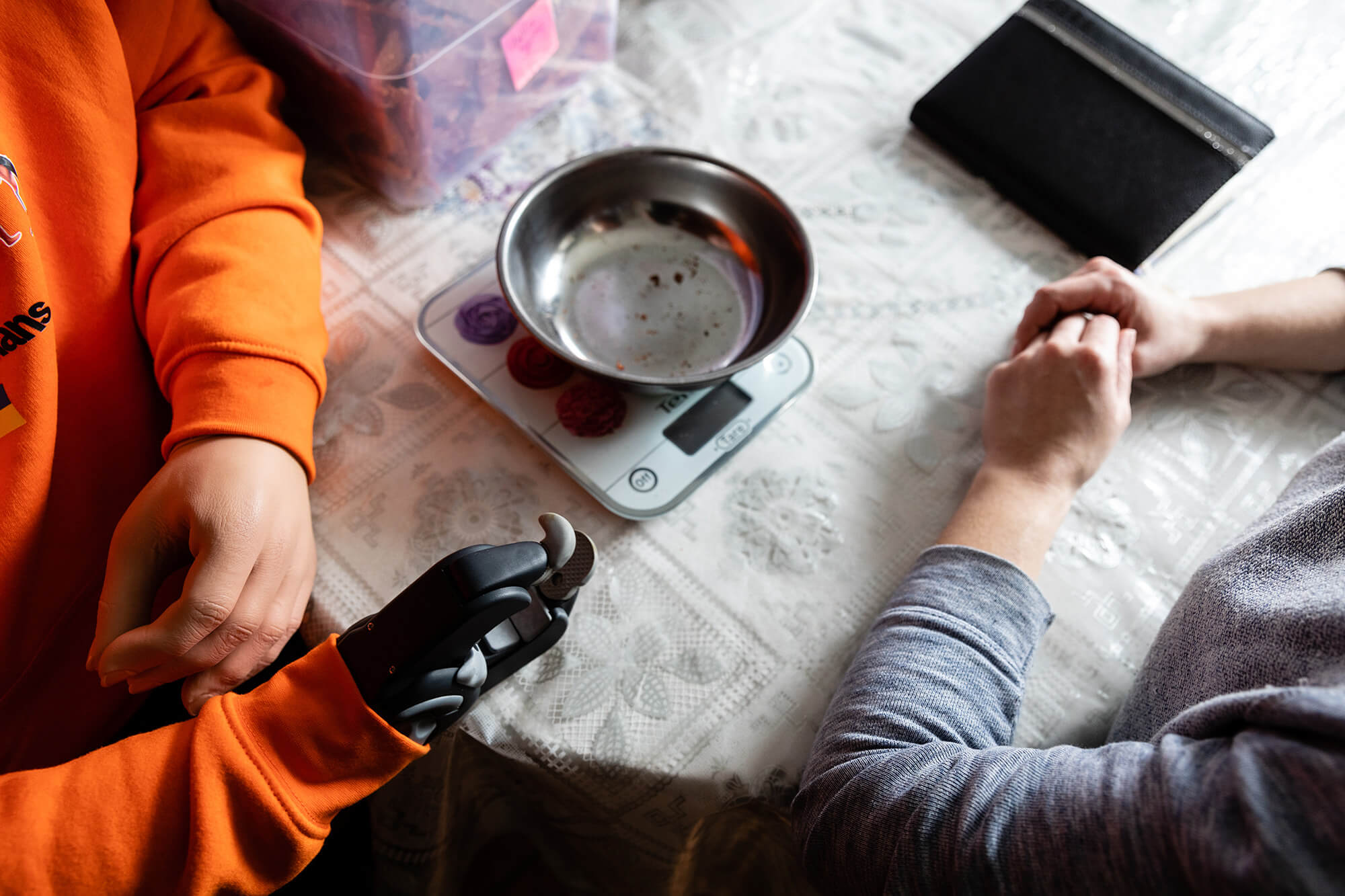
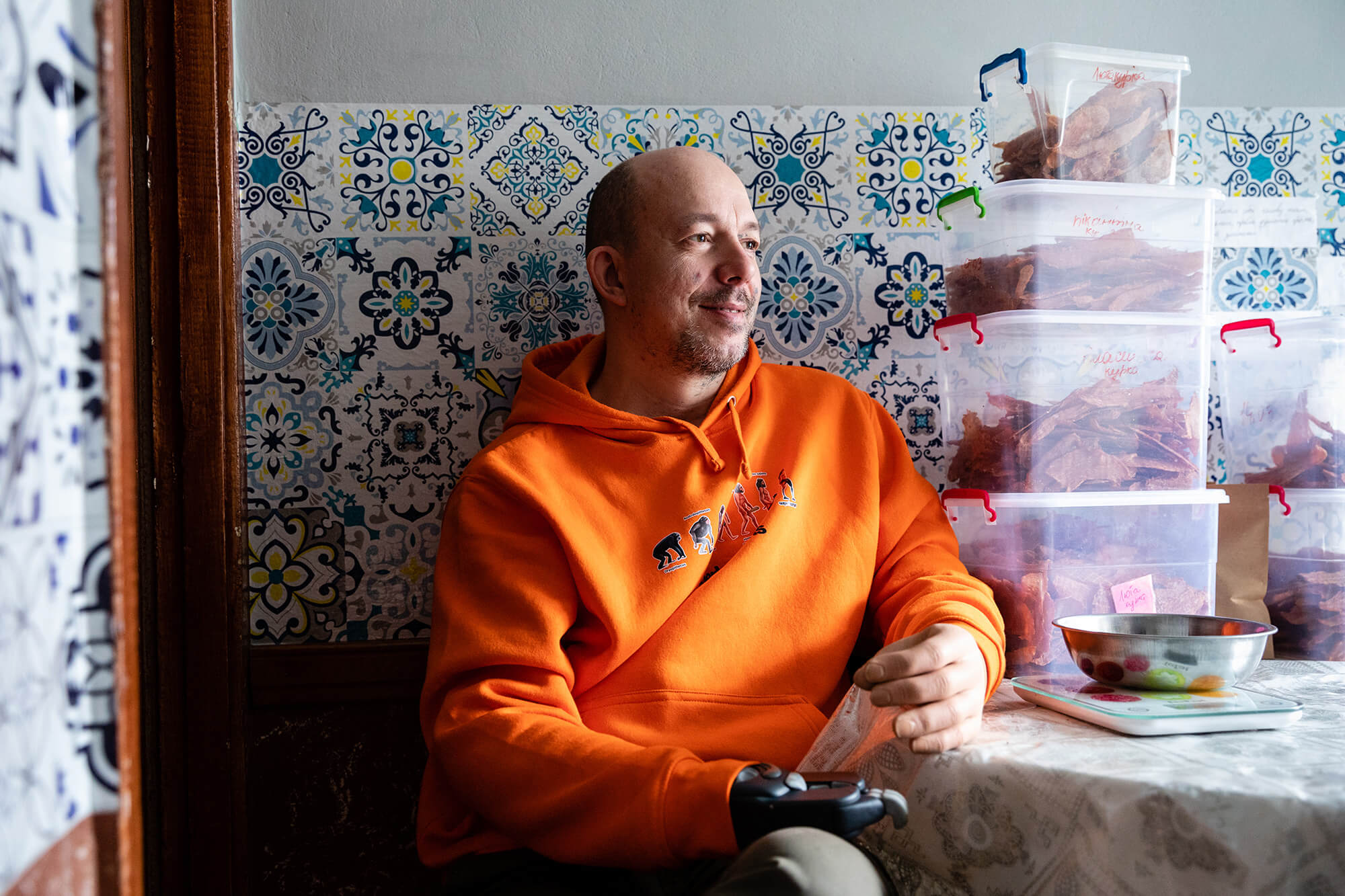
Serhii is the visionary behind this ambitious family business. He drew from the knowledge gained during his training and rehabilitation at the Superhumans Center. Initially, he applied for government-run programs for veterans but didn’t succeed. However, later, he learned about the German Adult Education Association (DVV International), a German non-governmental organization. Right then, they announced an open call for startups by Ukrainian veterans. Serhii submitted his application. Though he didn’t believe he could succeed on this first try, his project emerged as the winner among the top ten finalists. The program awarded him a grant substantial enough to purchase all the necessary equipment for his new venture.
In a matter of days, the cozy kitchen of the Zhukovskyi family in Lviv transformed into a manufacturing hub, where they started to produce their “Dried Joy.”
Secret ingredients
Laced curtains on the wooden windows filter the daylight into soft beams. Daryna carefully arranges slices of meat on a metal rack, each piece soaked in a flavorful marinade. “We have our secret ingredients,” Serhii says with satisfaction. Wine, citrus fruits, savory sauces of various flavors. The aroma of spices fills the kitchen, evoking images of far-off lands. The pivotal step in the jerky-making process begins, lending an air of excitement to the kitchen.
At first, a batch of thinly sliced jerky is left to marinate in the fridge for two days and nights. Afterward, they undergo a ten-hour drying process in a dehydrator that removes the moisture. Then comes the most intriguing part: packaging, sealing, and shipping the finished product to customers.
Each member of the team has their own set of responsibilities. Serhii and his sons, Oleksii and Ivan, take charge of promoting their jerky on Instagram and TikTok. They are also working on developing a website where customers will be able to easily place orders for “Dried Joy.” Serhii also manages meat delivery and oversees finances and accounting, while Daryna infuses vitality into the cooking process. Oleksii and Ivan lend a hand in packing the finished products in craft packaging and shipping their “joy” to customers.
For now, the main buyers of “Dried Joy” are Serhii’s friends, family, comrades, and members of the Superhumans Center team. Serhii dreams of scaling his business.
He believes that while war wreaks destruction, it also has the power to reignite the fading light.
***
In the Old Lion Bookstore Café in Rynok Square in Lviv, the chatter slowly subsides, giving way to the hushed sounds of shuffling feet, forks and knives clinking, and an occasional tinkle of a teaspoon in a cup. As the last few visitors, young hipsters in stylish black coats, walk outside, a gentle breeze sneaks in through the open door to the café warmed by the presence of people.
Today, this venue hosted a literary gathering of Ukrainian veterans and young readers. It was organized by the Superhumans Center team in collaboration with the Old Lion Publishing House. Serhii Zhukovskyi was among the first to be invited to this public event.
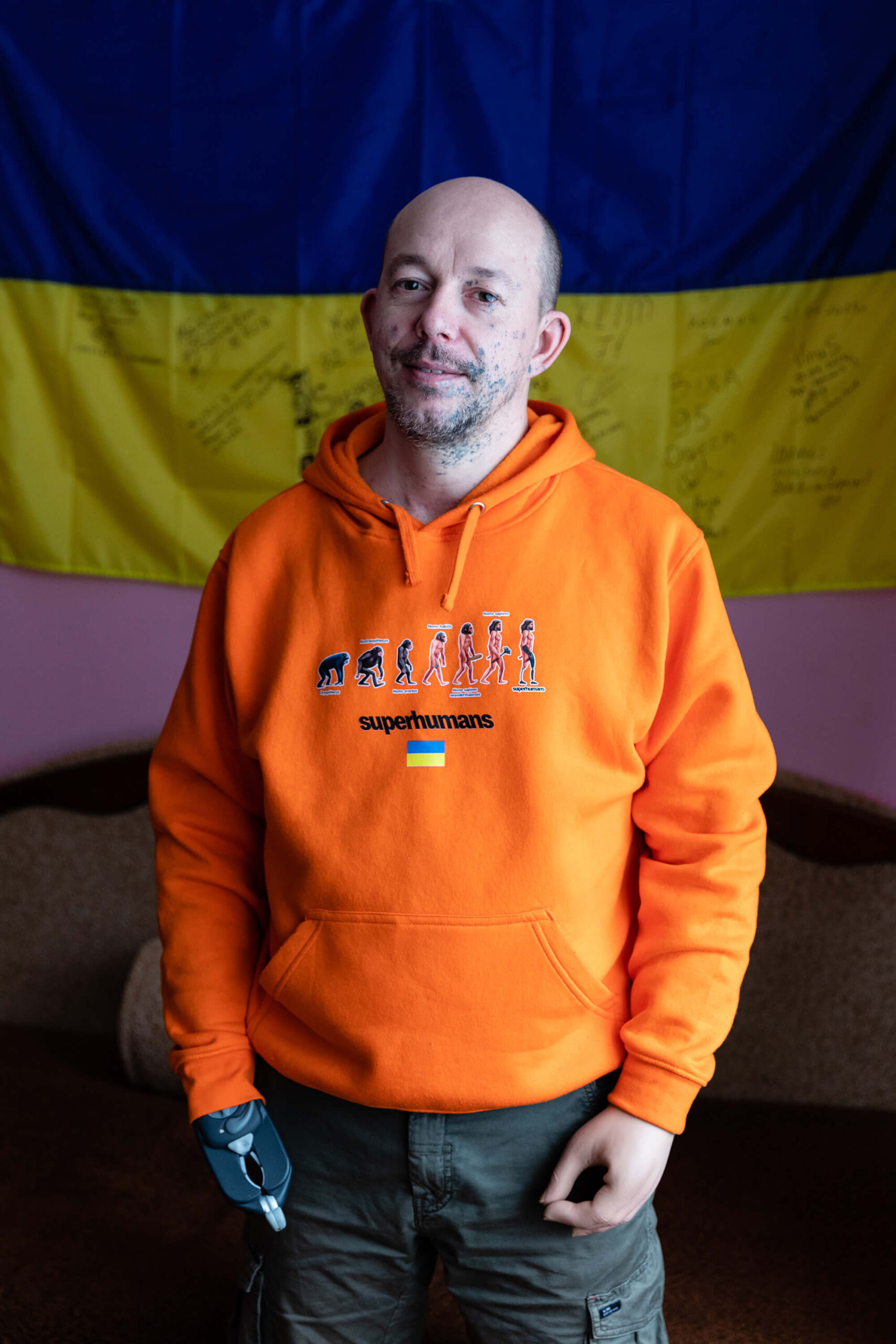
As we talk, Serhii holds onto the same piece of paper where he wrote his callsign with his steel hands. “Zhuk was here,” a child’s voice chirps, belonging to ten-year-old Oleksii, Serhii’s younger son, who nestles close to his father. Outside, a few passersby gather like a constellation of stars. They pause on the other side of a large window, peering inside with curiosity. A patron politely interrupts our conversation to shake Zhuk’s steel arm, expressing his gratitude, much to Serhii’s embarrassment.
“During my time on the front,” he says, “our commander told us: ‘Guys, I don’t care about medals. Even if you don’t reclaim some piece of land, it’s alright. I only want you to stay alive.’ Those were the words of a true commander, a human, a friend. That day, we actually suffered minimal losses. And in the end, we’ll reclaim what’s rightfully ours anyway,” he adds with a smile, his zest for life shining through.
His sons tug impatiently at his sleeve. Serhii grabs his green backpack and heads out, slowly disappearing into the distance of a long street swept clean by the springtime wind. In his temporary new home, in a tiny kitchen with laced curtains, awaits a business that brings him joy—a business that offers solace amid the agony of war.
“The Power to Continue” is a collaborative project between the United Nations Development Programme in Ukraine and Reporters. Our goal is to share unique stories of veterans and civilians who have lost limbs in Russia’s war against Ukraine, and not only found the strength to survive the trauma but also became drivers behind social projects and bold business ideas. We also highlight the stories of people who have helped them along the way. While there are not many of them, these people inspire and speak openly about their experiences, and this might become a starting point for others.
The special project was initiated by Reporters with the assistance of UNDP in Ukraine and financial support from the European Union as part of the “EU4Recovery—Empowering Communities in Ukraine” project. The opinions, recommendations, assessments, and conclusions expressed in these materials do not necessarily reflect the official position of UNDP, the EU, or their partners.
Have read to the end! What's next?
Next is a small request.
Building media in Ukraine is not an easy task. It requires special experience, knowledge and special resources. Literary reportage is also one of the most expensive genres of journalism. That's why we need your support.
We have no investors or "friendly politicians" - we’ve always been independent. The only dependence we would like to have is dependence on educated and caring readers. We invite you to support us on Patreon, so we could create more valuable things with your help.
Reports130
More






